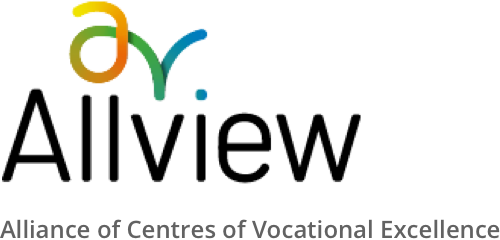The Wood Industry Cluster (WIC) of Slovenia recently completed a series of highly impactful coaching sessions focused on Corporate Social Responsibility (CSR) and sustainable development. Held on September 12, 13, and 19, 2024, the workshops spanned 20 hours and were conducted online via the ZOOM platform. The event saw participation from key industry leaders, including Mateja Habjan and Bernard Likar from WIC, along with representatives from several of Slovenia’s most prominent wood industry companies.
Five notable companies took part in the coaching phase:
- M Sora: A pioneering company known for its innovative, eco-friendly timber windows, doors, and sliding doors, blending technology with sustainable practices.
- Lumar IG: Slovenia’s leader in nearly zero-energy buildings (NZEB), pushing the boundaries of construction with a focus on energy efficiency and environmental impact.
- Marles Hiše Maribor: The country’s oldest manufacturer of prefabricated buildings, with over 70 years of experience in sustainable construction.
- Rihter: Specializing in low-energy, custom-made prefabricated houses, tailored to clients’ needs while promoting sustainability in construction.
These sessions allowed for fruitful discussions between industry leaders and the coaching participants, providing valuable insights into innovation and sustainability within the wood and construction sectors.
The coaching sessions covered a broad spectrum of CSR and sustainable development topics, structured around materials from WP4 and other resources developed by the coaching expert, Anita Hrast. Topics included:
- Introduction to CSR: Basic concepts, definitions, and historical overviews of CSR and sustainable development were discussed. Participants learned about global and EU policies, revised legislation, and new business requirements.
- CSR Strategy Development: How to create a CSR plan, identify key issues, engage stakeholders, and set clear goals aligned with business strategies.
- Implementation and Reporting: The session provided guidance on how to integrate CSR strategies into business operations, from internal communication and partnerships to monitoring progress and reporting transparently.
Participants engaged in interactive group sessions, where they worked together to answer key questions on CSR and ESG (Environmental, Social, and Governance) reporting. These discussions were aimed at determining:
- Who in the company is responsible for preparing the annual CSR report.
- The content structure of these reports in the context of ESG.
- Data collection processes, resources required, and ways to improve transparency.
Examples of good CSR reporting practices, standards such as ISO 26000 and GRI, and frameworks like the UN Global Compact were also highlighted.
A distinctive feature of the coaching sessions was the flexibility offered to participants. Attendees could choose to participate either informally (with no exams or homework, earning a certificate of attendance) or follow a more structured path, which included homework and exams to earn the prestigious “Leader for Social Responsibility and Sustainable Development (Level 1)” certificate.
At the end of the coaching phase, six participants chose to pursue the additional IRDO certification, recognizing the strategic importance of CSR in today’s business environment.
The coaching phase received overwhelmingly positive feedback. Some participants had prior CSR knowledge, while others were newer to the field. Across the board, attendees reported that the training broadened their understanding of CSR, providing them with actionable insights on how to integrate sustainability into their companies’ core operations. Key takeaways included:
- A realization of the need for dedicated CSR coordinators within companies.
- A commitment to expanding sustainability project teams.
- A wealth of materials and resources for continued education and in-house training, benefiting both colleagues and management.
The coaching sessions marked a significant step forward for the participating companies in integrating CSR and sustainability into their business models. As Slovenia’s wood industry continues to innovate and embrace sustainable practices, the knowledge and skills gained from these workshops will play a critical role in shaping a greener, more socially responsible future.

